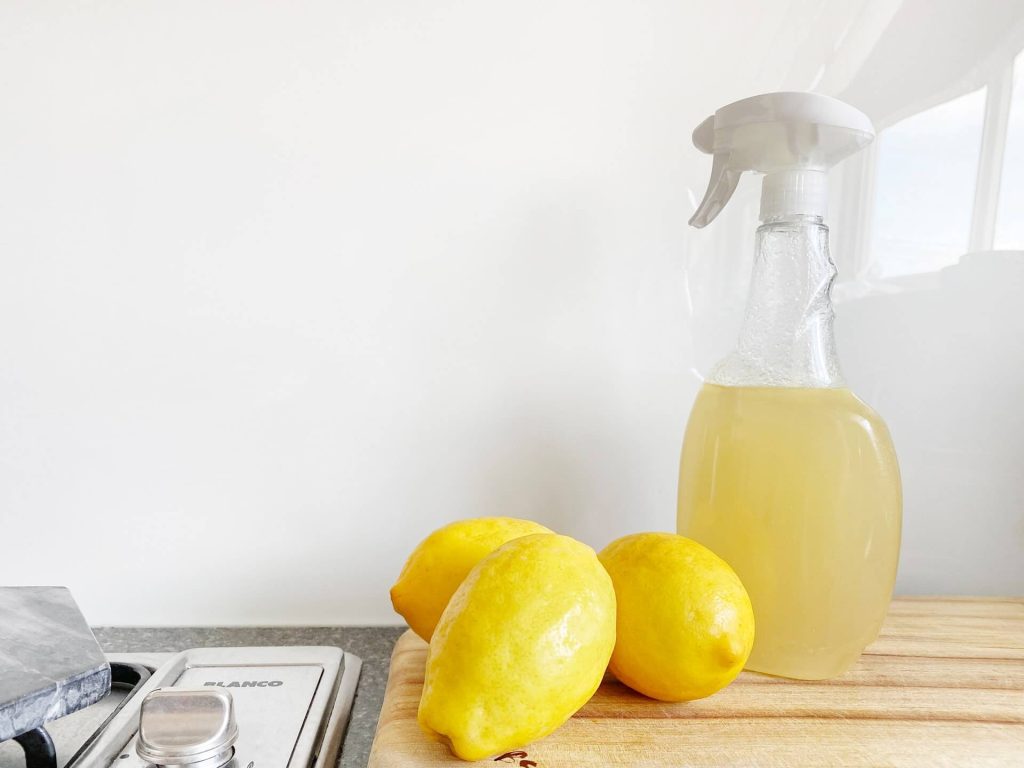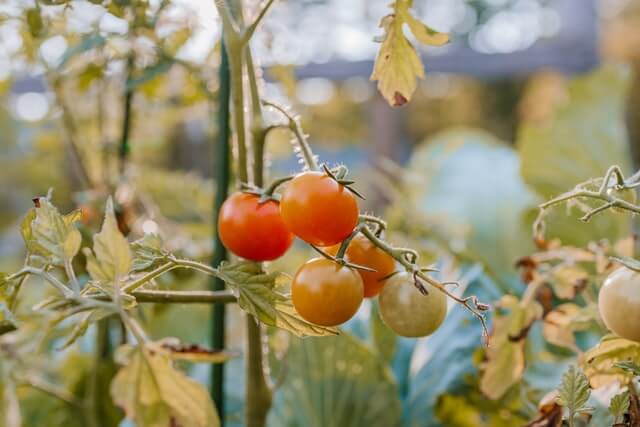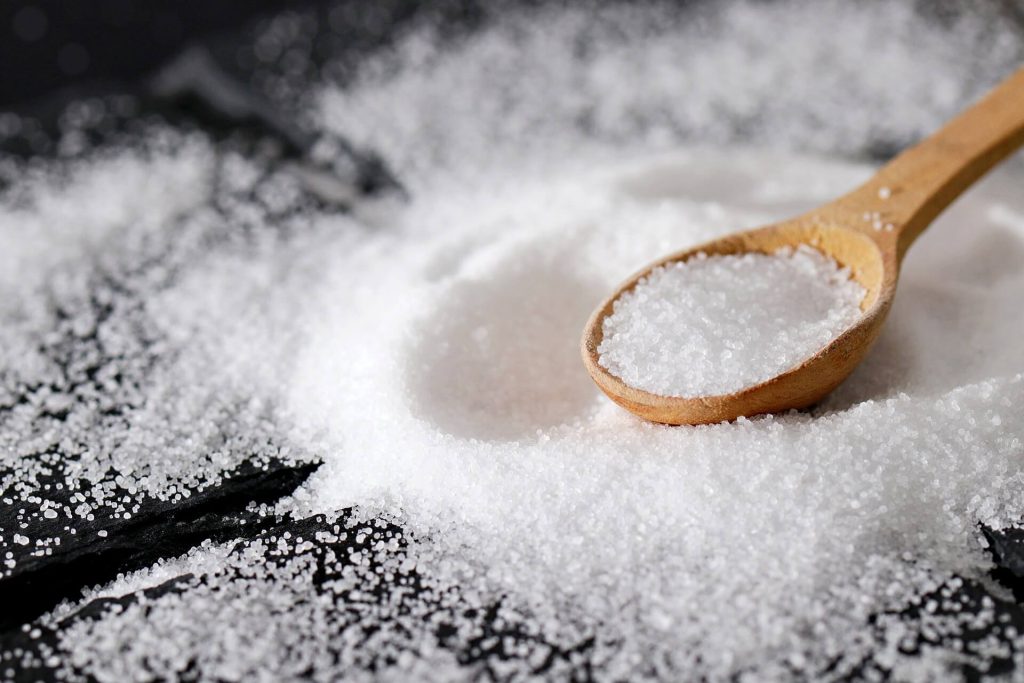Anyone who has ever swallowed salt water while surfing or swimming in the sea will remember the unpleasant taste of salt in the mouth. Rightly, salt water does not taste good to us: if we were to drink only salt water, we would ironically become dehydrated, because salt water withdraws more fluid from the body than it gives. But how does salt water relate to plants? Can you water plants with salt water?
No – you should not water plants with salt water. In salty water, plant cells behave differently and cannot absorb water due to osmosis. On the contrary, they release water. It’s different with tomatoes, which are actually helped by a little salt in the water.
In this article we explain why plants can’t tolerate salt water and also if you can use salt water in other areas.
Contents
- 1 Can you water plants with salt water?
- 2 Is salt water harmful to plants?
- 3 Why is salt harmful to plants?
- 4 What kind of water can be used to water plants?
- 5 Can you water plants with vinegar?
- 6 Can distilled water be used for watering plants?
- 7 Can you use sugar water for plants?
- 8 Can you use salt water for tomatoes?
- 9 How much salt water should I use for tomatoes?
- 10 Which plants tolerate salt water?
- 11 Author
Can you water plants with salt water?
The simple answer is no. A simple experiment illustrates what happens when you water plants with salt water: Take two vases and put the same plants in each. Now pour salt water into one vase and “normal”, i.e. salt-free, water into the other. The result: The flowers or plants in the vase with salty water wilt much faster than those in fresh water.
This is due to the physical properties of salt: salt is hygroscopic. This means that it attracts water. So, when plants are watered with salt water, they also give off water. This in turn has the following reason:
Osmosis is a biological principle: If two liquids are separated by a wafer-thin wall, they want to balance each other out, i.e. mix with each other. The liquid with a higher salt content attracts the liquid with a lower salt content. In plants, this wafer-thin wall is the stem or the outer layer of the plants.
Inside the stems or in the cells of the plants themselves is also weakly saline water. So in the “normal case” plants can absorb water from the environment by osmosis. However, if salty water is added to the plants, the exact opposite happens: due to the principle of osmosis, the less salty water inside the plants flows outwards. The plant therefore loses liquid – and eventually wilts. This is because without water in their cells, plants cannot carry out photosynthesis.
So it’s because of the principle of osmosis and the exchange between salty and less salty liquid that you shouldn’t water plants with salt water.
Is salt water harmful to plants?
Yes, salt water is harmful to plants. This is because due to the principle of osmosis, the plant in salt water releases liquid instead of absorbing it. As a result, it can no longer photosynthesize and eventually dies.

Have you accidentally poured salt water into your plants? Here’s what you can do:
If you have accidentally poured salt water into your plants, it will be harmful to the plants, but will not immediately ruin them. So you have time to take appropriate countermeasures.
Salt water in houseplants – emergency tip:
- If you have poured only a small amount of salt water, you can simply add more fresh water. This will lower the salt concentration.
- If possible, pour off the salt water from the flower pot.
- If the salt water has already seeped into the soil, it’s best to replace the potting soil to be completely safe.
Why is salt harmful to plants?
Plants, like us humans, need a little salt to survive. Too much, however, is harmful. Then there is a risk of salt poisoning: the chemical processes within the plant are impaired. Photosynthesis no longer takes place properly, so the plant can no longer produce sugar, which it needs for energy. It eventually dies due to too much salt.
What kind of water can be used to water plants?
Many people want to water their plants not only with “normal” water, but with special water – for example, even mineral water. But which water is best for your plants? What can you water your plants with?
Can you water plants with vinegar?

Yes, you can safely give your plants a portion of vinegar every now and then. This has some advantages:
Vinegar against weeds.
The acid contained in vinegar inhibits the growth of weeds. The soil is not polluted in the process.
Vinegar as fertilizer
You can also use vinegar to replace your fertilizer: Simply mix two tablespoons of apple cider vinegar to three liters of water.
Vinegar against fungus
Vinegar changes the pH of the plant. This can inhibit fungal growth. We recommend mixing two tablespoons of vinegar with two liters of chamomile tea.
- Vinegar against insects and ants
- Vinegar also helps go ants and insects. The penetrating smell deters vermin – and also keeps rodents and moles at a safe distance.
Can distilled water be used for watering plants?
Distilled water is water that has been purified of impurities and trace elements by distillation. It is therefore often used in chemistry and pharmacy as a cleaning agent and solvent.
Theoretically, distilled water can also be used for watering plants. It does not contain lime, which is good for plants. However, it also no longer contains minerals – and plants do need these. So if you water your plants with distilled water, you also need to add fertilizer separately accordingly.
Can you use sugar water for plants?
You want to use sugar water for your plants? This is not a good idea. This is because, as a rule, plants cannot utilize simple household sugar. But if you mix the sugar into the soil, the soil organisms living in the substrate around the plant may well benefit. And a small variety of plants will even benefit if you water them with sugar water:
Potatoes
It’s best to add a tiny bit of sugar when preparing the bed in the fall. This allows organisms in the soil to break down minerals and nutrients.
Cabbage plants
Brussels sprouts, in particular, are happy to receive regular fertilizer due to their long standing in the bed.
Fruiting vegetables
Again, if you are planting the bed, adding sugar won’t hurt.
Strawberries
If you want to fertilize an old strawberry bed, you can use a little sugar for this purpose.
Corn and fruit trees
Caution. Adding sugar to these plants does no good – they simply can’t use the sugar. In the case of fruit trees, household sugar can even attract ants – and they, in turn, could encourage aphids in the branches.
Can you use salt water for tomatoes?
Unlike many other plants, it may be beneficial for tomatoes to use slightly salty water for watering. However, if you are thinking of seawater, you are wrong. That’s because seawater contains an average of about 3.5% salt – far too much for tomatoes.

How much salt water should I use for tomatoes?
If you want to water tomatoes with salt water, you should use about 1 gram of salt per liter of watering water.
But be careful: do not water tomatoes with salt water too often and do not let the leaves come into contact with salt water. In addition, there are no scientific studies that confirm the effectiveness of salt water for tomatoes.
Therefore, we recommend: rather water the tomatoes with fresh water and make sure you fertilize them adequately. This often works better than fertilizing your tomatoes with salt water.
Which plants tolerate salt water?
Of course, there are plants that can tolerate salt water and thrive in salty environments. This group is also called salt plants or halophytes (from the ancient Greek ‘hals’ for salt and ‘phyton’ for plant). They have adapted to the higher salinity.
There are several adaptation strategies: Some salt plants, for example, shield themselves from the salt ions by an extra-thick layer – so the salt does not enter the plant in the first place. Other species, on the other hand, excrete the salt again from the plant parts. Particularly curious: There are even salt plants that get rid of the salt by simply throwing off parts of the plant.


